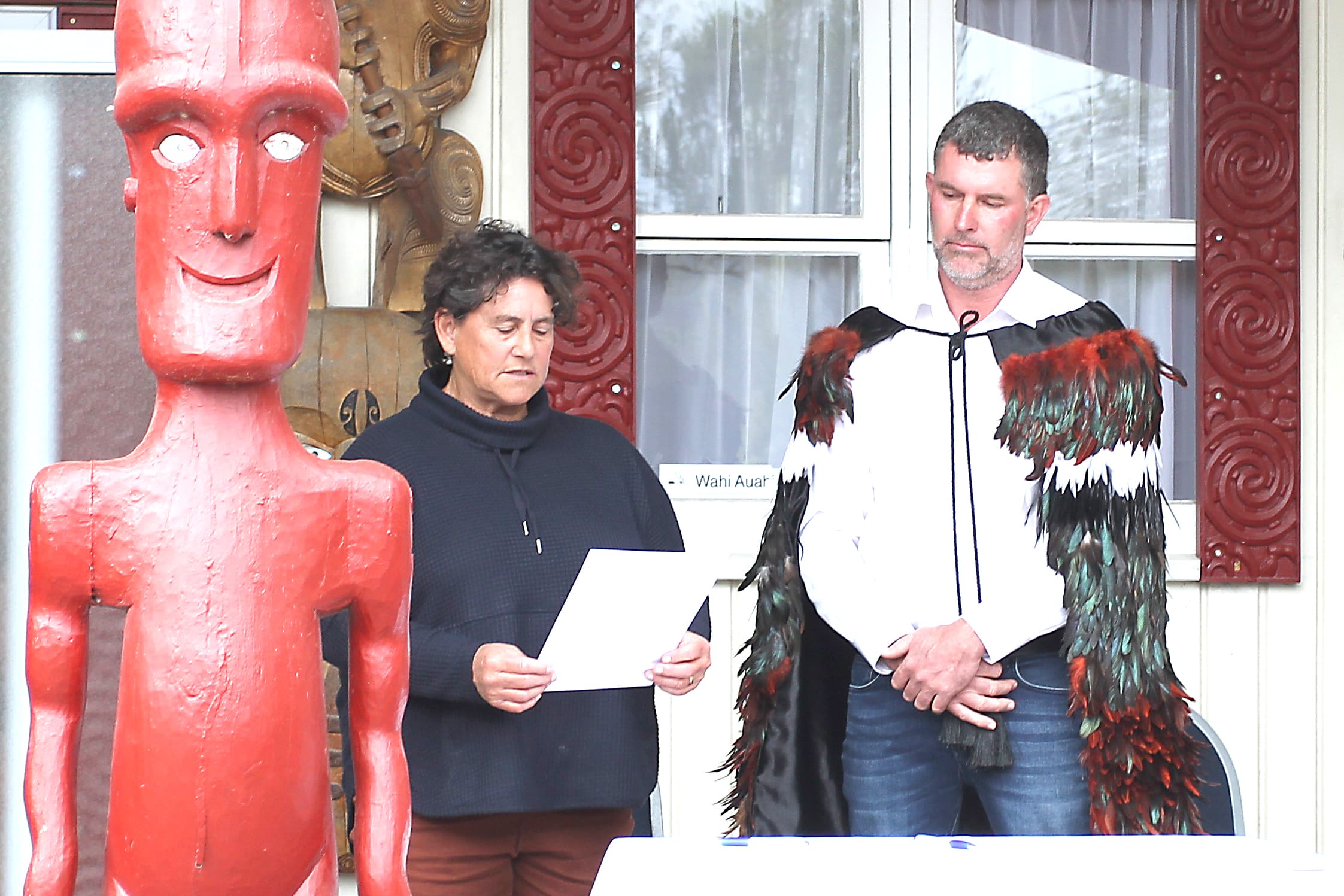Tasman creates Māori ward to provide new opportunity


Councillor Chris Hill, pictured at the council’s swearing-in ceremony at Motueka’s Te Āwhina Marae, says the ward is just one way for Māori to be involved in local decision-making. Photo: Max Frethey.
Tasman District Council has approved the creation of a Māori ward in a decision that was supported unanimously by elected members.
“Democracy in New Zealand has generated the status quo decade after decade after decade. Apart from the ethical and moral matter, we’re required to have iwi Māori involved in decision making in council,” councillor Chris Hill says.
“Having a Māori ward is one way of doing that.”
Following legislative changes in 2021, local councils can now decide to establish Māori wards without consulting the public.
Previously, Māori wards were only established if a majority of respondents to a binding poll on the subject supported their implementation – a “pretty terrible” system, Chris says, noting that general wards never had to be approved through a poll.
Jenna Neame, council’s kaihautū (manager of Māori relationships), said in a report on the creation of a Māori ward that, because of the discrepancy in establishing different wards, such polls were often a “debate on race”.
Elected members asked several questions of Jenna about community consultation on the topic during Thursday’s council meeting, to which she repeatedly replied that implementing a Māori ward would not directly affect non-Māori residents of Te Tai o Aorere (Tasman).
“How Māori are represented shouldn’t affect them,” Jenna said.
“I’m going to be really black and white about that. There should really be a line drawn around anyone who feels like they might be impacted by this, unless they’re on the Māori electoral roll or want to be, they’re not impacted by this decision because of the other process that takes care of their representation.”
Council will undertake is six-yearly representation review in 2024, which could have far greater effects for non-Māori residents than a Māori ward would, mayor Tim King said.
“That’s going to have all sorts of other challenges around representation and communities and that is probably going to be a much bigger decision and conversation with the wider community.”
Tim acknowledged a Māori ward was not “a perfect answer” for enabling greater Māori participation in local government but said the ward was about “providing an opportunity for other people to contribute to the democratic process”.
Councillor Brent Maru echoed a similar sentiment when he reflected on his father’s involvement in local democracy.
“As far as I know, my dad never voted. He’d be one of the few in Māori wards,” he said.
“Had there been a Māori seat in Tasman, my dad may have voted in those elections. Therein lies the challenge for me in terms of how we get those people who are not engaged in local government to be engaged, and certainly for Māori.”
The chairs of the eight Te Tauihu (the Top of the South) iwi trusts wrote to the council in August in a joint letter to “wholeheartedly support” the creation of a Māori ward.
The decision brings Tasman into line with the Nelson City and Marlborough District Councils who established Māori wards ahead of the 2021 local elections.

